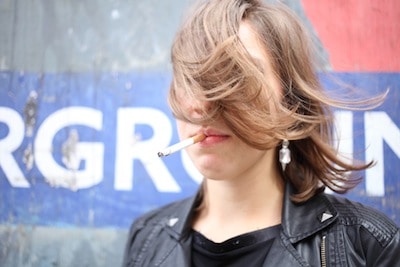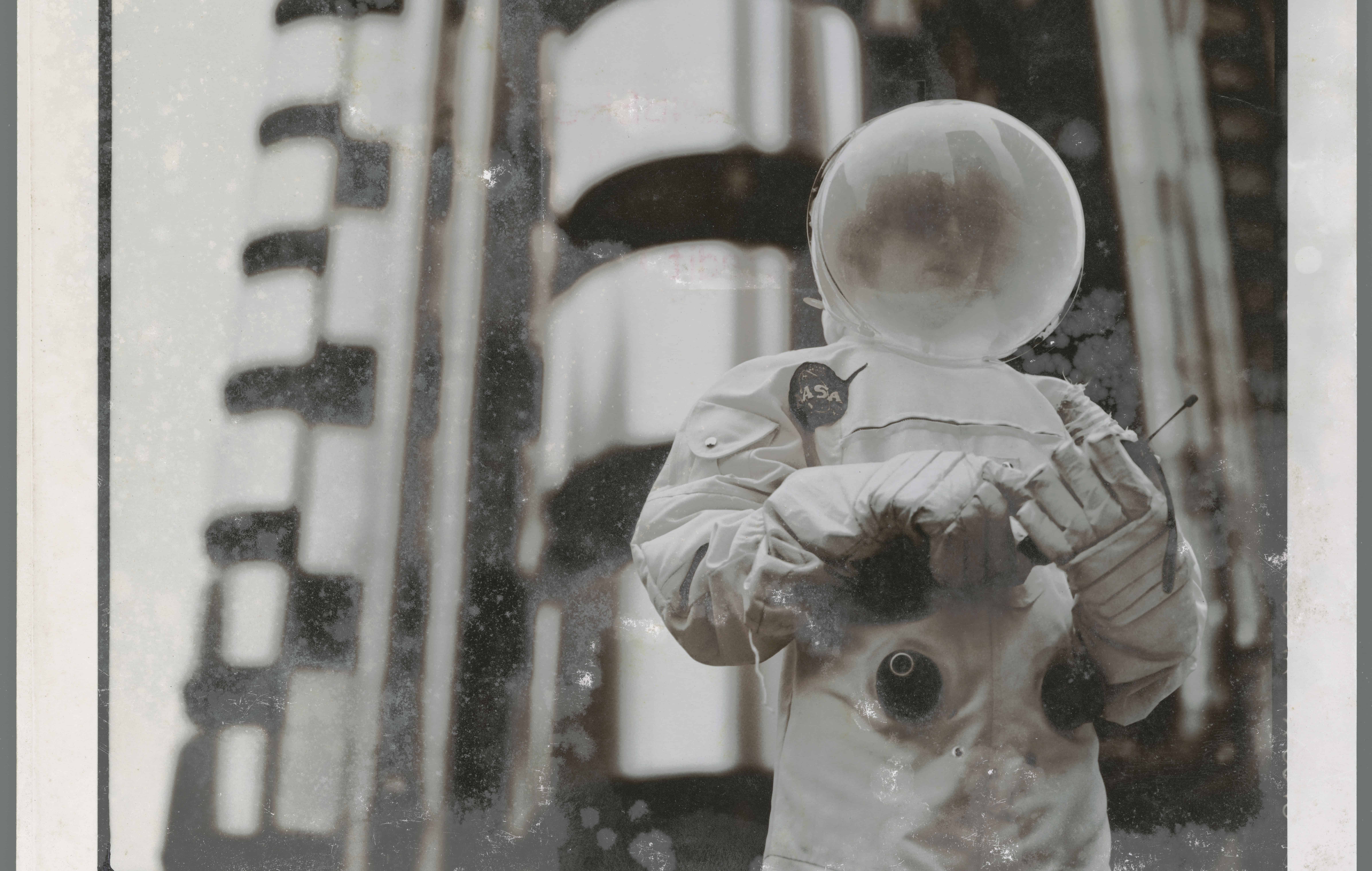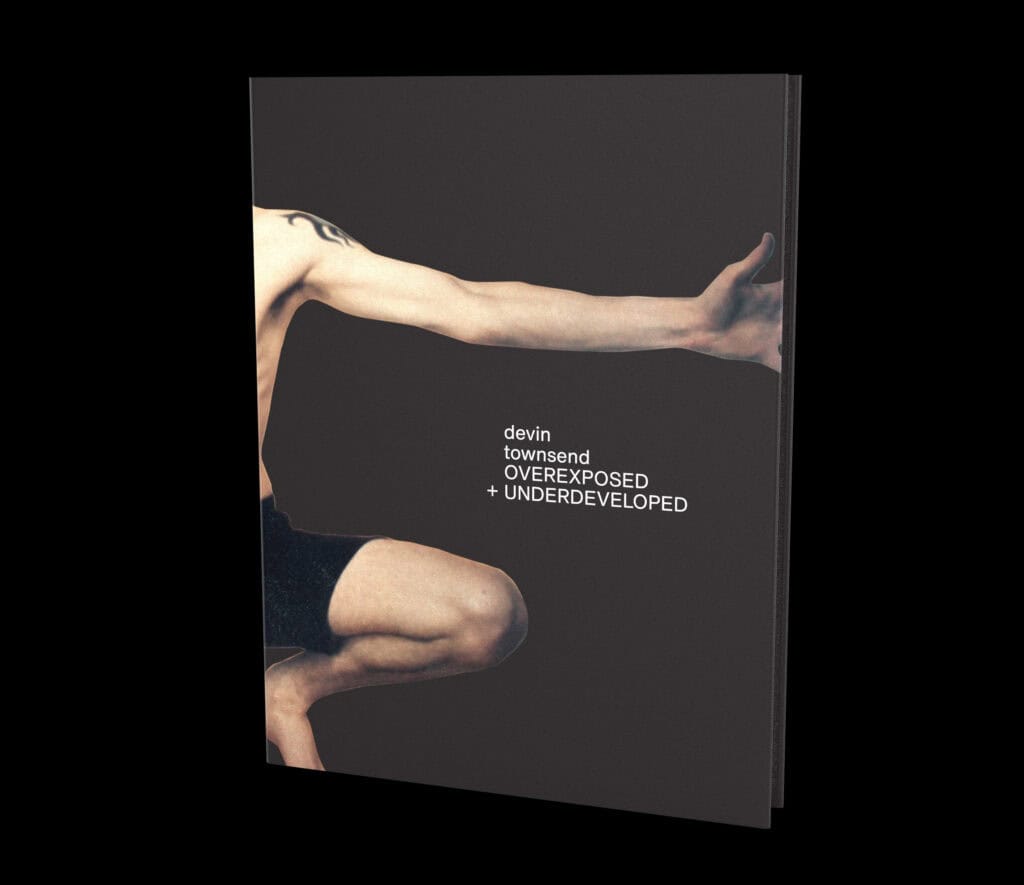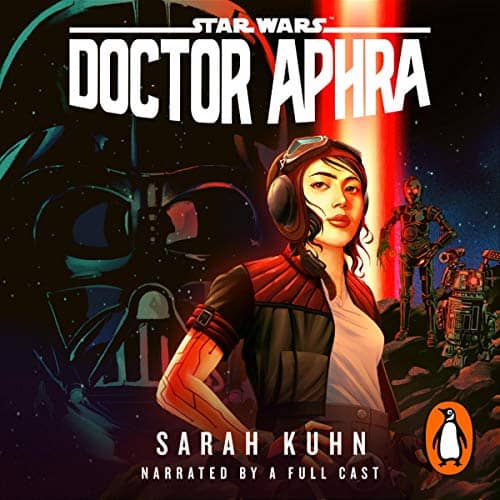Thought your life had taken some weird turns? We sat down with new author Polly Trope to discuss the rollercoaster life of a young woman who has penned a darkly poetic series of snapshots from her bizarre existence so far. From being a 90s teenager in Berlin, to being locked away in a New York Mental Asylum, before finding herself plunged into a world of drug addiction and prostitution over here in Britain. We had the chance to talk with Polly Trope about her experiences writing about this life less ordinary in her first book ‘Cured Meat’.
It may have been a crazy ride in the past but, to open with, we asked Polly what she was up to in the present with the book launch just around the corner.
“Well, last night I went to a friend’s farewell doo, as he is moving to Morocco, and this morning I had a lie-in with my boyfriend. So not much really but we will be going for a long walk later.” Considering the highly volatile contents of ‘Cured Meat’, it’s quite heart-warming to hear Polly’s life seems to have settled into something more manageable than the absurd and often frightening elements that have guided her young existence so far.
One of the most striking things about the novel is the notion of wanderlust. As such a globe-trotter we were keen to find out exactly where she was at the moment. “I don’t have a fixed abode,” she begins. “But it’s been a pretty constant back and forth between Berlin and London for the last year and a half or so.”
We may have given a brief introduction to the book here, but with such weighty themes come preconceptions so we gave Polly the chance to tell us in her own words what she considers the novel to be about. “It’s about finding the way to happiness from a dark place,” she says with great optimism. “In the first case it’s about coming out of the mental hospital, which is a pretty traumatic way of life. It describes the unexpected twists and turns on the way out of there. Wriggling out of psychiatric care is not a simple operation. So the book also describes stops on the way like being homeless and on the streets, drug problems and sex work, and it talks about the problems of starting one’s life over from scratch.”
Obviously, when a book is written with first-hand accounts of those dark corners of human life, it is not going to be the lightest of reads so we were curious to know if Polly had purposefully written it as a warning against the dangers lurking in the world beneath the veneer of our own.
“I don’t know!” she blurts immediately. “The main purpose is to entertain. People have always been really keen on hearing me tell these stories at dinner parties or in late night bars. I think it’s rather the opposite of moralistic, because it’s a character that has gone through more than one situation that traditional morals would totally forbid or cover in shame, and yet it’s a character that stays confident and self-respecting. I think what I would like is for people who do find themselves in these kinds of situations to feel less disheartened. Prostitution or psychiatric treatment are seen as things from which there is no escape, but there is!”
It comes as no surprise that people enjoy hearing Polly tell her tales as she is clearly a natural storyteller, but as a non-native English speaker we wanted to know how she found the experience of writing the book in her secondary language.
“I really love it. It was a great way to get to know the English language. I think readers who are native speakers of English can probably recognise that it’s a non-native speaker writing, were they to read my book. But I don’t think that’s intrinsically a bad thing. I speak English in England with a lot of people who have migrated to England from all over the world, and we have no other common language. It’s a slightly different English from the English spoken by English people but, as such, it reflects the social realities.
For those among us who have been fortunate enough to publish a book, we know that it is a feeling of great elation to see the tome finally produced bearing our name, but we wondered how that experience must be for someone having to mask their real identity with a pseudonym.
“Choosing and using a pseudonym is a project in itself,” she says. “I became aware that I could do more than just have a pseudonym for identity-masking purposes. I started to develop a much more clearly defined character based upon this like an artistic persona, like Lana del Rey, Lady Gaga or Ziggy Stardust. Not that Polly Trope is at all similar to these, but what they have in common is that they are projected identities, clearly defined and well-conceived characters. Polly trope isn’t 100 per cent defined though. In fact, there is a lot that’s undecided yet, but the process of developing such a character takes away some of the confusion and randomness of being a person and I find that really useful as a way of being less vulnerable when it comes to my work or self being criticised.”
So, we retorted, is this your book or Polly’s book? “Hard to say,” she laughs. “Some of the passages in the book go a very long way back. I may have written certain things in this book as long as six or seven years ago. At that time I didn’t have this plan in mind yet. I think that ‘Polly Trope’ began to form as an idea in my head about three years ago. I didn’t actually get down to writing the book until last year, so I think the character becomes more and more strongly defined as the book moves forward. In a way that’s not too surprising since it’s also a tale of growing up.”
Without wanting to spoil the events of the book, prostitution is a subject that’s rare to find someone so willing to speak openly about, so we asked how Polly fell into the trade. “I just met a guy at the casino in London one night,” she begins candidly. “We got chatting, and he was involved with brothels and all that, so he took me to one and then asked me if I wanted to work there and I said yes. Then he took all the money, so he was pimping me out. But that’s not how most of the women I met got into it. They mostly had been brought to England from their home towns in Romania and Moldova by criminal gangs. I was already living in London and addicted to drugs. It was a time and situation where I had quite a few problems: many debts with banks, and I had just been kicked out of my flat by the flatmates because I couldn’t afford the rent. I was in that line of work for about 10 months. Much longer than expected or intended but, again, it’s quite a difficult situation to get out of once you are in it.”
It has been an incredible journey for Polly Trope, but how exactly did the ill-fated travelling to America come about? “I went to America because I went on a graduate program there, like one of these five year structured PhD programmes. I stayed in the States for about three and a half years, and I first went to mental hospital about two months after arriving. I think I spent about three years in and out of mental hospital and on medications before I escaped.”
“Escaped” is a really intriguing word in this sense, so we asked the young author if she could illuminate this detail. “Again it’s a bit complex and convoluted like these things are,” she says. “I had gone away to Germany for a few months after I had been in mental hospital twice in a year, and I got a new doctor in Germany. I felt much better there, because he didn’t prescribe some of the drugs that the Americans were really pushing, and which I hated because they made me so sick. This is when I first started to become angry with the psychiatrists I had met in the US and when I first began to wonder why they were so adamant I must take something called Zyprexa. When I returned to America after my stay in Germany, it was going to be the same again, so I asked to refuse the treatment. But my boss sent me back to them. A truly awful thing happened then, which I think would probably take too long to explain but is totally in the book, after which I decided to leave overnight.”
It’s not all doom and gloom in the book though. It’s a chronicle of life itself in the contemporary world, and the sense of place itself seems to be particularly important. We wondered what it was that made Soho so significant to her.
“By a random coincidence, when I was an undergraduate in London I ended up renting a room in Soho for two years, and really loved it there because I loved all things theatrical, drama, cabaret, fashion, and neon, and it has always seemed a place where eccentric and quirky people could do their thing in peace and it all combines together beautifully. It’s easy for me to hang around there. I have pursued a fairly serious career at times and found myself really rejected by people in schools and work places. The middle-class mainstream can be really poisonous for someone like me, who is admittedly a bit quirky, so it’s nice in Soho there’s time and space for humane banter.”
Soho is, of course, a place that revels in being away from the mainstream and is something of a haven for the marginalised. Polly explained how the idea of marginalisation is central to the book: “It keeps recurring. It’s not something I’ve deliberately belaboured, but it rears its head more than once in the course of the story.”
“Story” is an interesting choice of word, because this novel began as a series of short stories, but their interconnectedness has led to the book becoming most readily described as a novel. That playfulness of style, and creative approach to narrative is not something Polly is ignorant of as she explains:
“Yeah, I think I might have read too many poetry collections at University. The Roman poets were particularly known for the way they made their poetry collections not only a series of poems, but also a work of conceptual art in terms of how the poems were arranged, what follows what, etc. I was really attracted to that. Another thing I was really attracted to in my studies was that there are certain books where it does not matter at which point the reader start to read, so they can shuffle around however they please and they don’t lose any substantial information in doing so. Of course other forms and habits of writing are much more current now, so I tried to bring all the threads together and make it a flash fiction collection that, if the readers wish, they can pretend is a novel and read it cover to cover, but not necessarily. I wanted to write and publish exactly what I want to, and I couldn’t see myself talking to agents or publishers about it. And then with a self-published book there is always that slim chance that a publishing house will see it and buy it notwithstanding.”
Such a creative approach brings to mind Deleuze and Guattari’s idea of the rhizomorphous book, and it is in such moments of creative confidence that you get a sense of the real weight of ideas and intellect behind this first time release. So with ‘Cured Meat’ now available in print or as an ebook, what does 2014 have in store for Polly Trope?
“I would like to have my own flat or room in a flat,” she begins modestly. “It’s very lovely of people like my boyfriend or parents to let me stay at theirs, but I want to have a bit more stability and focus…and then I have just started to think about doing a new, slimmer book called ‘Child Of Sleaze’ which will be about the 1980s from a child’s point of view.”
The book is available now from Oneirosbooks at the link below, and stay locked on Soundsphere magazine for a review of ‘Cured Meat’ shortly.
http://youtu.be/hiYMgTJTzTY









This piece is so good I feel I don’t need to read the book.